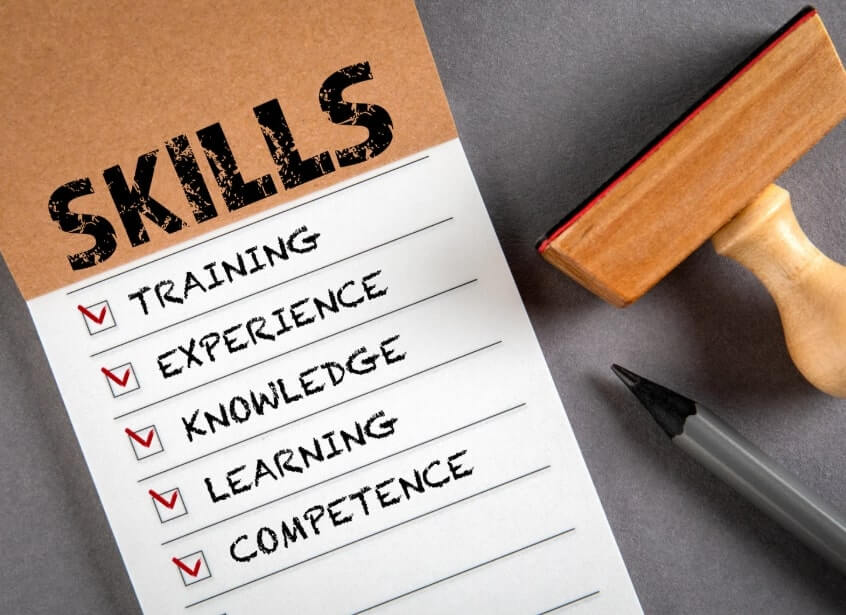
Quick Overview
Employability skills are the core abilities like communication, teamwork, and adaptability—that make you valuable in any workplace, no matter the industry. They’re often called “transferable” or “soft skills” because they support long-term career success beyond technical expertise.
This guide will explore:
✅ What employability skills are and why they matter for every career path
✅ 10 surprising facts showing their impact on hiring, salaries, and career growth
✅ Real-life examples of employability skills in action
✅ Practical tips for building and improving these skills
✅ Why they’re key to thriving in the age of AI and global workforces
In today’s competitive job market, technical expertise alone isn’t enough to guarantee career success. Employers are increasingly seeking candidates who also possess strong employability skills—those essential capabilities that make an individual valuable to any workplace, regardless of their industry or role.
But what exactly are employability skills? Why do they matter so much? And how can you develop them to boost your career prospects?
In this blog, we’ll break down what employability skills are, why they’re critical, and share 10 interesting facts that shed light on their true importance.
What Are Employability Skills?
Employability skills are a set of core competencies and personal attributes that employers look for in potential hires. They are sometimes called “soft skills,” “transferable skills,” or “job readiness skills,” and they include abilities like:
- Communication
- Teamwork
- Problem-solving
- Adaptability
- Time management
- Leadership
- Critical thinking
- Work ethic
Unlike technical skills (such as coding, accounting, or using specific machinery), employability skills are broadly applicable across all sectors. Whether you’re applying for a role in engineering, education, healthcare, business, or hospitality, employers expect candidates to bring these essential skills to the table.

10 Interesting Facts About Employability Skills and Why They Matter
🧠 1. Employers Value Soft Skills as Much as Hard Skills
According to a LinkedIn report, 92% of hiring managers said that soft skills are equally or more important than hard skills when hiring.
Why it matters:
No matter how technically brilliant you are, you need interpersonal and problem-solving skills to thrive in a collaborative work environment. Teams fail when communication and adaptability are missing—even if everyone knows their technical tasks.
🎯 2. The Top Skills Employers Look for Are Transferable
Communication, teamwork, and critical thinking consistently top surveys of employer needs across industries.
Why it matters:
Transferable skills mean you’re employable across different sectors. If your industry changes or your career goals shift, strong employability skills make it easier to pivot.
📈 3. Employability Skills Increase Your Earning Potential
Studies show that employees with strong soft skills often earn higher salaries than those who rely solely on technical abilities.
Why it matters:
Companies reward individuals who can lead teams, resolve conflicts, and communicate with clients. Strong employability skills often correlate with faster promotions and leadershi
🔍 4. They’re Essential for Career Progression
Even if you land an entry-level job based on your technical prowess, moving up the career ladder almost always demands better communication, leadership, and decision-making skills.
Why it matters:
Your long-term success is tied not just to what you know, but how well you can work with others, innovate, and lead.
🧩 5. Automation and AI Make Soft Skills Even More Important
As artificial intelligence and automation take over repetitive technical tasks, uniquely human skills—like empathy, creativity, and critical thinking—are becoming more valuable.
Why it matters:
Machines can process data faster than humans, but they can’t lead a team, inspire creativity, or resolve a complex interpersonal conflict. Future-proof your career by mastering employability skills.
🌍 6. Global Employers Demand Cultural Intelligence
In an increasingly interconnected world, the ability to work across cultures is critical. Cross-cultural communication and adaptability are top skills for global employers.
Why it matters:
If you’re aiming for international roles or working in diverse environments, cultural sensitivity and global collaboration skills can set you apart.

🤝 7. Most Skills Can Be Developed—Not Just Inherited
Some people mistakenly believe that traits like leadership or communication are “natural” talents. In reality, employability skills can be developed and refined through training, practice, and real-world experience.
Why it matters:
Even if you’re not a “born leader” or a natural public speaker, you can improve with effort. Continuous improvement in soft skills boosts both confidence and career readiness.
🛠 8. Volunteering and Part-Time Jobs Build Employability Skills
You don’t need to work in a formal corporate job to develop valuable soft skills. Volunteering, internships, student leadership roles, and part-time work all help build crucial competencies like teamwork, time management, and responsibility.
Why it matters:
If you’re starting your career or switching industries, highlighting experiences where you demonstrated employability skills makes a strong impact on your CV and interviews.
🗣 9. Communication is the Most In-Demand Employability Skill
A National Association of Colleges and Employers (NACE) survey found that strong written and verbal communication skills were the number one attribute employers looked for on CVs.
Why it matters:
Whether you’re pitching an idea to your boss, writing an email to a client, or collaborating with teammates, effective communication is at the heart of workplace success. Improving how you listen, articulate ideas, and persuade others will open doors in any career.
🎓 10. Universities and Colleges Are Emphasising Employability More Than Ever
Recognising how critical these skills are, many higher education institutions are weaving employability training into their degree programmes. Career services often focus on helping students build a portfolio of skills, not just academic achievements.
Why it matters:
Students who actively develop employability skills during their studies—through workshops, placements, or extracurricular activities—transition more smoothly into the workforce and often secure jobs more quickly.

Examples of Key Employability Skills in Action
Here’s what strong employability skills might look like in real-world scenarios:
- Problem-solving: Diagnosing why a project is delayed and suggesting actionable solutions.
- Teamwork: Collaborating across departments to meet a product launch deadline.
- Leadership: Mentoring junior colleagues and motivating a project team.
- Adaptability: Adjusting quickly to a company’s shift to remote working.
- Work Ethic: Meeting deadlines consistently and taking responsibility for quality work.
Employers look for evidence of these skills through interviews, cover letters, and references—so be ready to share examples from your own experience.
How to Improve Your Employability Skills
If you want to strengthen your employability profile, here’s how you can start:
- Take workshops in communication, leadership, and emotional intelligence.
- Seek feedback from managers, mentors, and peers—and act on it.
- Volunteer for team projects or leadership opportunities.
- Practise public speaking through local groups like Toastmasters.
- Stay curious and pursue lifelong learning, including short courses in project management, negotiation, or conflict resolution.
- Work on emotional intelligence—the ability to understand and manage your own emotions and those of others.
Final Thoughts
In a world where industries are evolving rapidly and job markets are becoming increasingly competitive, employability skills have never been more important. They’re the foundation for not just landing a job, but excelling in your career, leading teams, and driving innovation.
🎯 Key Takeaways:
- Employability skills like communication, teamwork, and problem-solving are essential across all industries.
- They boost your hiring potential, earning power, and career longevity.
- Unlike technical skills, employability skills remain relevant no matter how technology evolves.
- Anyone can develop and strengthen these skills with conscious effort.
- Building a strong set of employability skills today is one of the smartest investments you can make for your future.
So start sharpening your employability skills now—and take the next step toward building a resilient, rewarding career!
